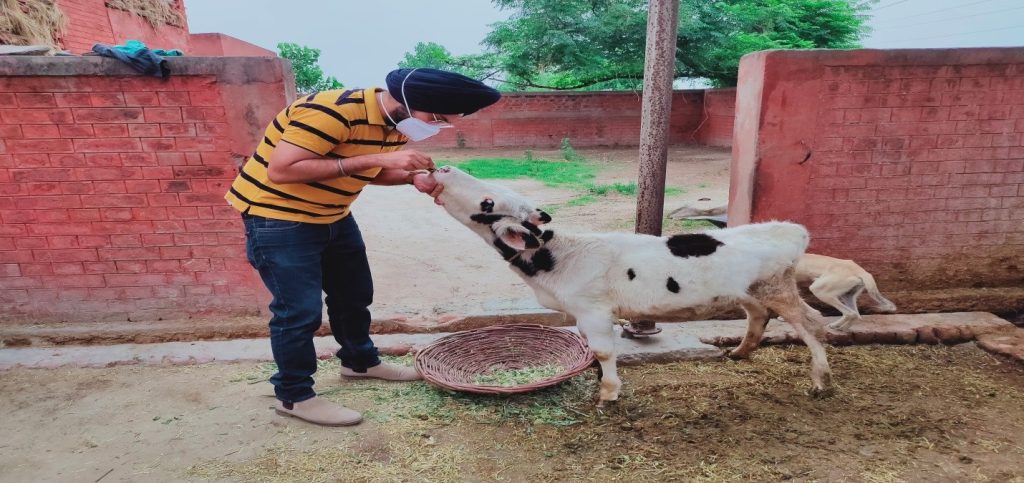Medicines for internal parasites should be given twice a year

Deworming a calf
Deworming is the process of giving anthelmintic drugs to animals to get rid them of helminth parasites, such as roundworm, liver fluke and tapeworm. Deworming against internal parasites should be done twice a year — at the beginning (May-June) and after the end of the southwest monsoon (August-September).
How to make the deworming programme a success?
- Farmers need to do deworming of their animals on a regular basis.
- The best time to do deworming is in the early stages of the disease when the pest/worm burden is low.
- Deworming should be done after checking animal’s dung.
- Be sure to give anthelmintic medicine to pregnant animals 15-20 days before parturition.
- All animals should be starved for 24 hours before deworming.
- Deworming should start 15 days after the birth of the calf.
- The calf should be dewormed every month till the age of 6 months.
- Adult animals should be dewormed every 4-6 months.
- In places where the disease is heavier (hot-humid areas), deworming is recommended three to four times a year until the age of two.
- The local veterinarian should be consulted for all deworming suggestions.
Deworming programme in animals
| Types of worms | Deworming schedule | Anthelmintic medicine |
| Roundworms | First dose at 10-15 days of age and then each month up to the age of 6 months
Three times a year in animals over 6 months of age |
Fenbendazole, Ivermectin |
| Liver flukes | Twice a year (January and June) in endemic areas | Triclabendazole, Oxyclozanide |
| Tapeworms | Twice a year (January and June) in calf | Praziquantel, Niclosamide |
(By Kanwarpal Singh Dhillon, Maninder Singh Bons and Ajaib Singh, Krishi Vigyan Kendra, Hoshiarpur, and Simran Jot Kaur, Guru Angad Dev Veterinary and Animal Sciences University, Ludhiana)
To read in Punjabi and Hindi, click below.
